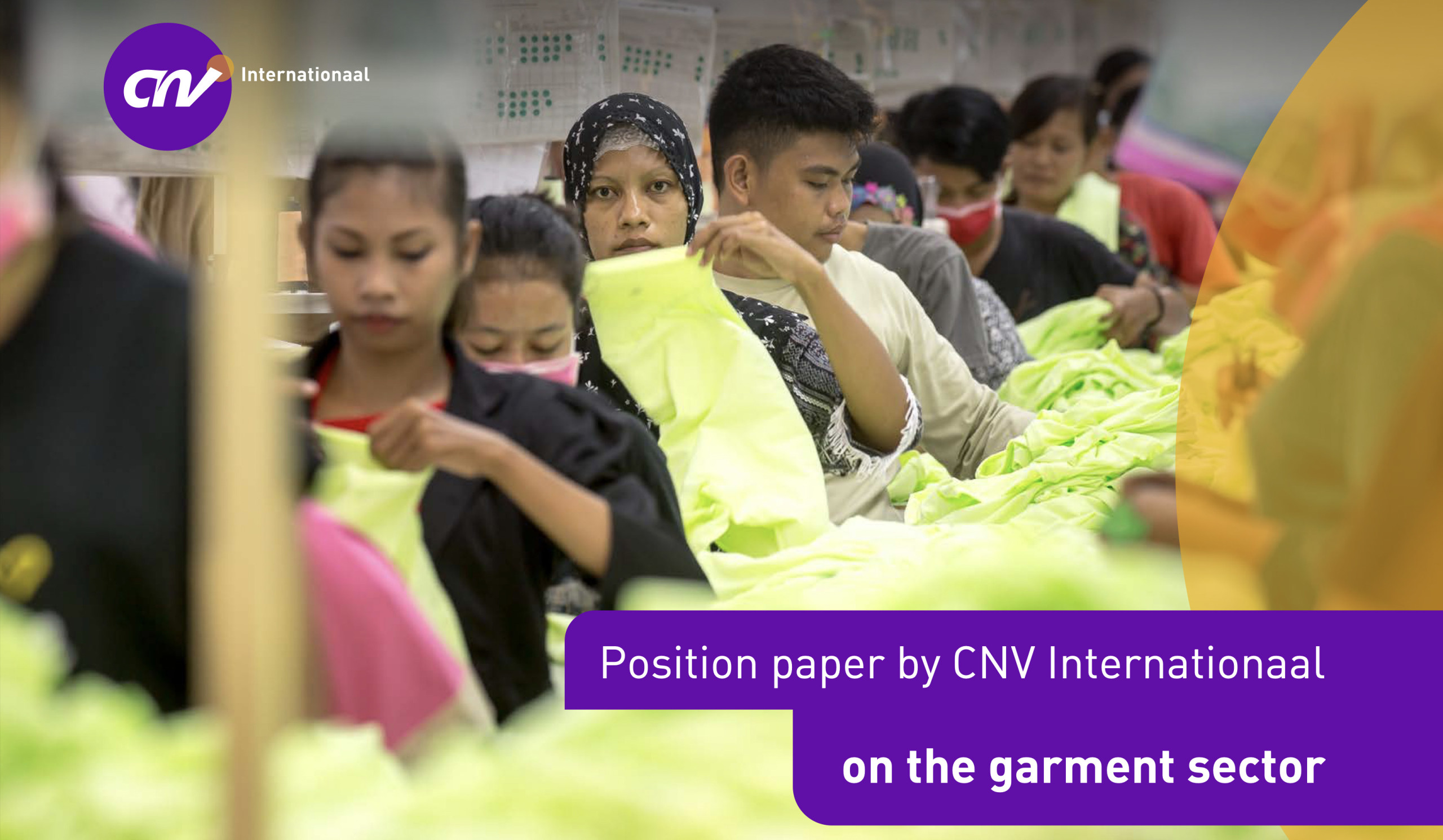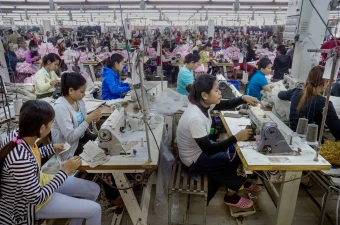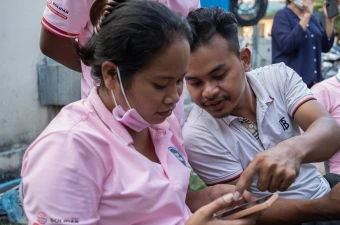A fast paced industry
The textile industry has evolved into a fast-paced sector with rapidly changing collections, low prices and complex supply chains spread out over different continents. Unfortunately, this growth comes at the cost of more than 70 million garment workers worldwide Over 70% of them are women. Their labour rights are often not respected.
That is why CNV Internationaal is dedicated to ensuring that garments are produced in a fair and sustainable way, with respect for and protection of workers’ rights at the beginning of the supply chain. We collaborate with local union partners in Cambodia, Indonesia and Vietnam, but also with employers's organisations, the Dutch clothing industry and the sectoral organisations.. Together, we strive to create decent working conditions in garment factories. Our focus is on freedom of association, living wages, gender equality, and safe workplaces.
What is happening?
Main problems in the garment sector
The way the garment industry is set up leads to a race to the bottom with low prices, quick changes, and production spread out over different countries and continents. This causes various human rights violations, such as extreme working hours, health & safety issues, gender-based violence, low wages, and child labour.
Low wages
Everyone should be able to earn a living wage. Unfortunately, this is not the case for many garment workers. Every year, CNV Internationaal carries out the Fair Work Monitor. This digital, worker-driven survey tracks wages, cost of living, and working conditions in the garment and footwear sectors in Cambodia. The project is supported by seven trade union partners. The latest results reveal alarming outcomes:
- There is a 41% gap between the average garment worker’s take-home salary and the cost of living.
- This forces 73% of workers into debt just to cover their basic needs.
Lack of protection of labour rights
Many policies and commitments from brands and suppliers on labour rights exist in the garment supply chain. Unfortunately implementation of these commitments lags behind.
An assessment of labour compliance in 12 Indonesian garment factories revealed alarming facts. Human rights risks, including low wages, coerced overtime, restrictions on freedom of association, forced labour, sexual harassment and unsafe working conditions, remain prevalent.
However, one message came through loud and clear: factories with independent unions and genuine collective bargaining show stronger compliance with labour standards. This is precisely the approach that CNV Internationaal takes.
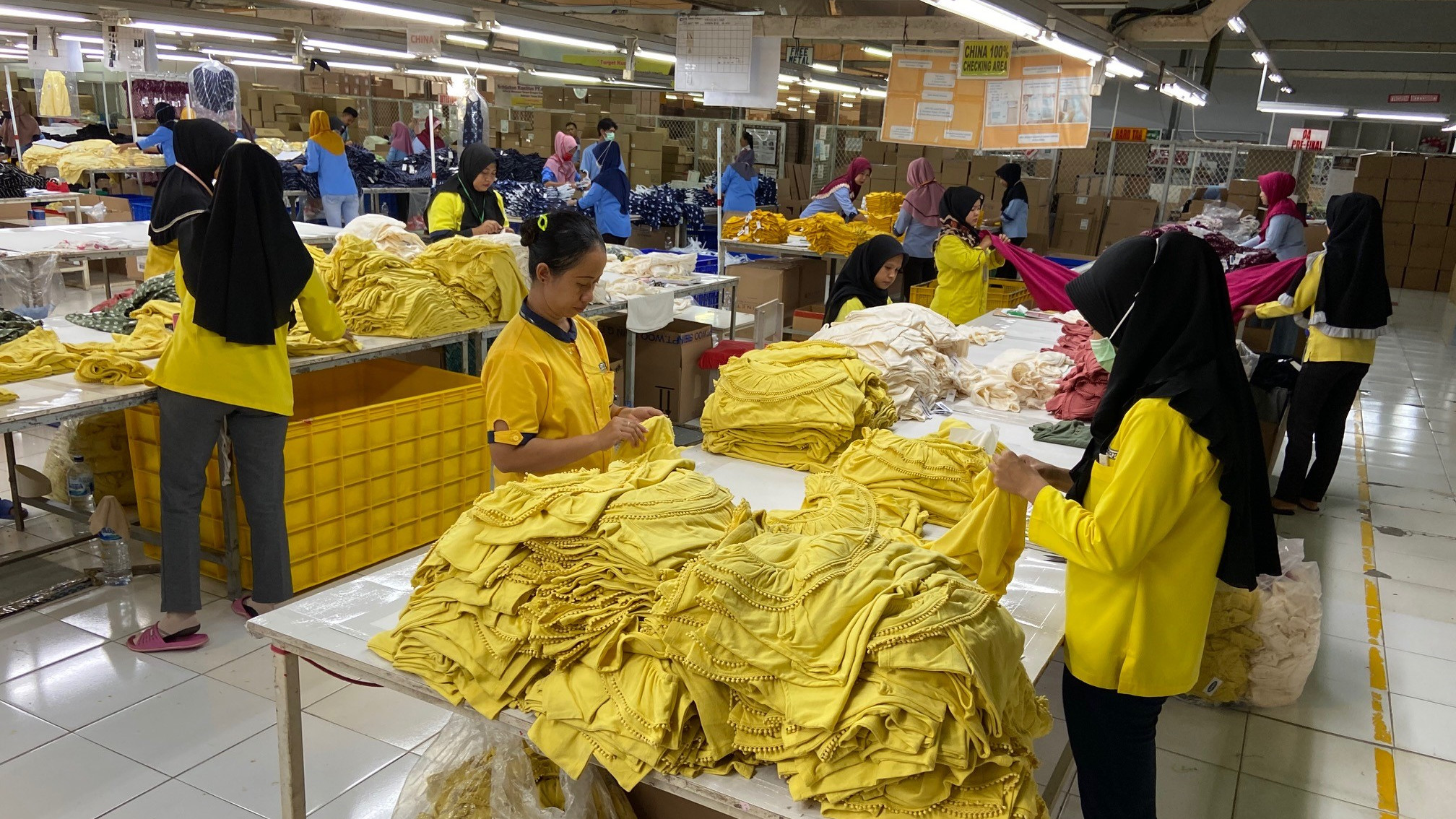
Our approach
We aim to improve working conditions in the garment supply chain by strengthening local trade unions, supporting workers to stand up for their rights, and facilitating dialogue between management and unions. At the same time, we work with brands to make their supply chains more sustainable.
STITCH Programme
One of the main programmes through which CNV Internationaal carries out its work in the garment sector is the STITCH programme (the Sustainable Textile Initiative: Together for Change), run in partnership with five other organisations.
STITCH aims to empower workers to speak up, form unions and bargain collectively for better working conditions. STITCH supports workers to be heard, by bringing together national and international supply chain stakeholders.
Together with the STITCH partners we have delopped The Framework on Meaningful Stakeholder Engagement — available on the STITCH Partnership website
Our impact
Promoting fair labour practices
We collaborate with trade unions to improve working conditions, ensure fair wages, and uphold labour rights.
Results
- We have developed Multi-Company Collective Bargaining Agreements (MC-CBAs) in Indonesia and Vietnam through which CBAs are negotiated in several garment companies within the same region. Through this innovative approach, we contribute to upscaling both labour and productivity while reducing social unrest and avoiding unfair competition. So far, MC-CBA have led to improved working conditions for at least 37.500 workers at 48 companies.
- As a brand, supplier or donor, you can now become a part of one of these Multi-company agreements and reap the benefits. How? Learn more in this video and check our MC-CBA page.
- Through our work with Garteks, our trade union partner in Indonesia, 11 new collective bargaining agreements (CBAs) were created, directly impacting the working conditions of almost 95,000 garment workers. All of these CBAs included provisions to promote gender equality and prevent gender-based violence in the workplace.
Read more about the impact that improved social dialogue and strengthened trade unions can have on working conditions at garment factories .
Promoting living wage
We promote living wage in the garment sector, targeting and collaborating all relevant stakeholders in the supply chain – trade unions, brands, employers, governments.
Results
- We launched the Fair Work Monitor – a worker voice tool that tracks and monitors wages, cost of living and working conditions in garment factories. Supported by this vital tool, seven trade union partners in Cambodia have strengthened their position at the minimum wage negotiations table.
They have been able to collectively demand higher wages by using evidence directly from the workers to back up their arguments.
>Link to Fair Work Monitor Cambodia 2024.
Promoting implementation of Human Rights and Environmental Due Diligence (HREDD)
We support the implementation of robust HREDD frameworks, holding companies accountable for their supply chain practices.
Results
- We contributed to the development of European policies that require companies to assess and address human rights and environmental risks in their operations. > Learn more about our BOOST-HRDD programme.
- We were one of the first organisations to actively involve trade unions in HREDD. Our focus is on building their capacity to play an active role in meaningful stakeholder dialogue at every stage of the six-step due diligence process.
It's our aim to ensure that this knowledge is not confined to the training pools that we have set up in Cambodia, Indonesia, Vietnam and West Africa. Therefore, we have launched the HREDD Training Toolkit for Trade Unions. It is available to all.
> Discover our HREDD Toolkit.
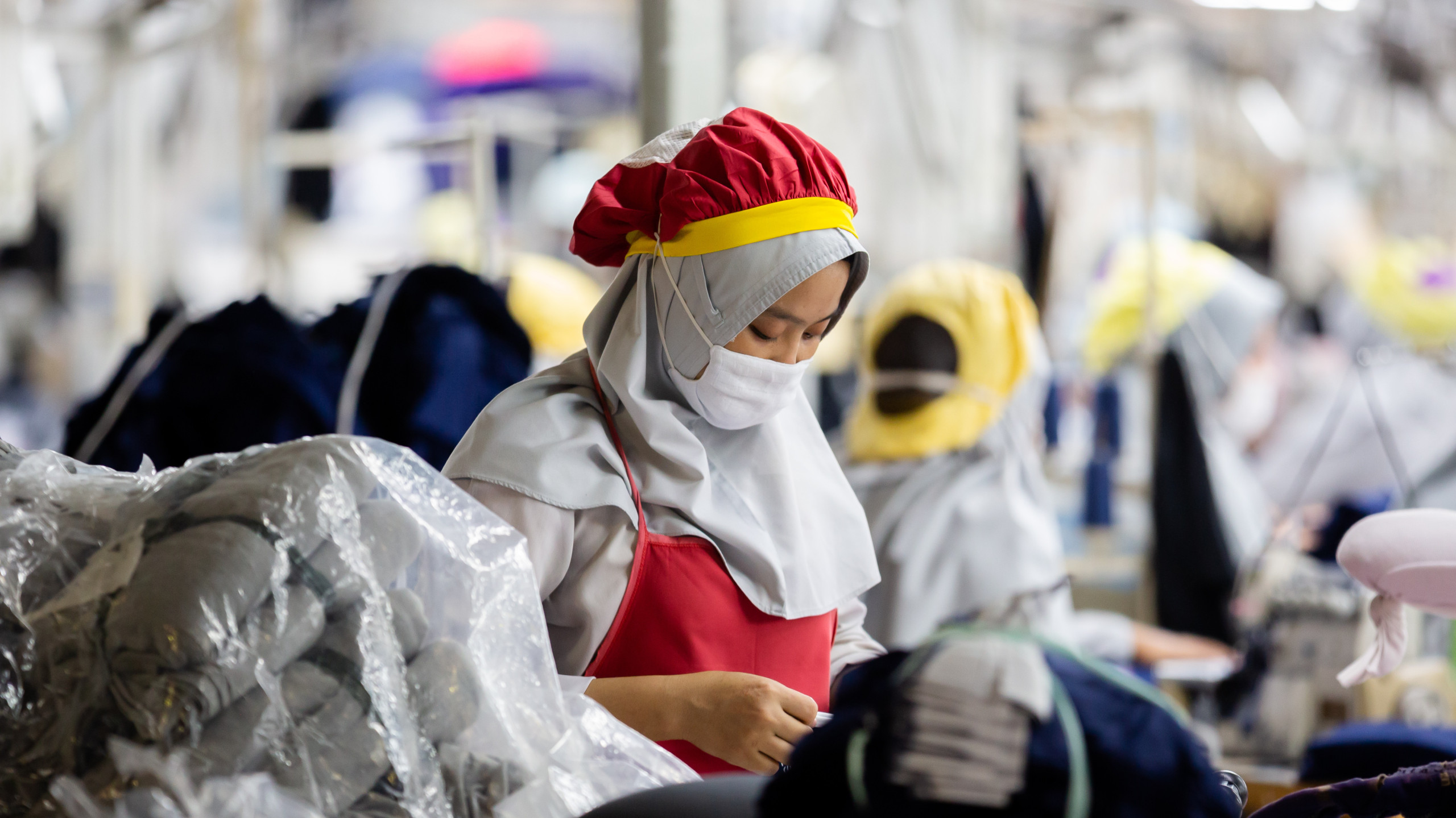
Our resources and tools
- Bart Slob, Rresearch on the use of grievance mechanisms by trade unions in the garment sector
- The Framework on Meaningful Stakeholder Engagement — STITCH Partnership website
- HREDD Training Toolkit for Trade Unions
- The Importance of Freedom of Association and Collective Bargaining for Brands
Contact
Achieving systemic change in the garment industry requires collective action. Whether you're a brand, supplier, policymaker, or trade union leader, your involvement is crucial.
- For brands & suppliers
Partner with us to align your operations with fair labour standards. We invite you to contact us and discuss how you can collaborate with us through one of our programs:
> Join a Multi-company Collective Bargaining Agreement Process MC CBA
> Becoming a member of the Verbond (new RBC Alliance for sustainable clothing the Dutch textile sector),
> Join our new Fair Impact Programme to identify and adress HRDD risks or more.
- For policymakers: Collaborate with us to develop and enforce regulations that promote ethical supply chains.
- For trade unions: Join our efforts to raise awareness and drive change towards a just garment industry and discover our HREDD Training Toolkit.
Get in touch
Isabelle de Lijser, Regional Coordinator Asia: i.delijser@cnv.nl
Margot Offerijns, Programme Officer Asia: m.offerijns@cnv.nl
